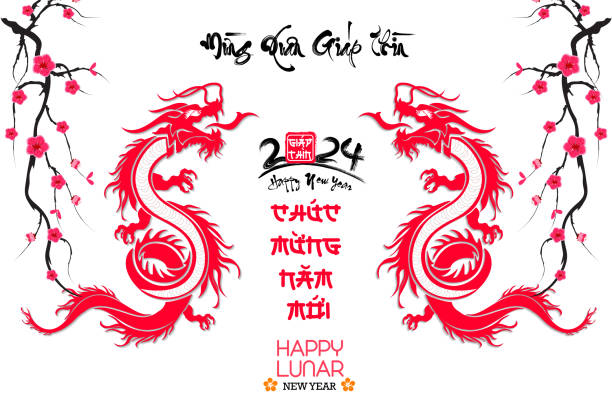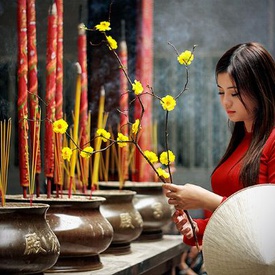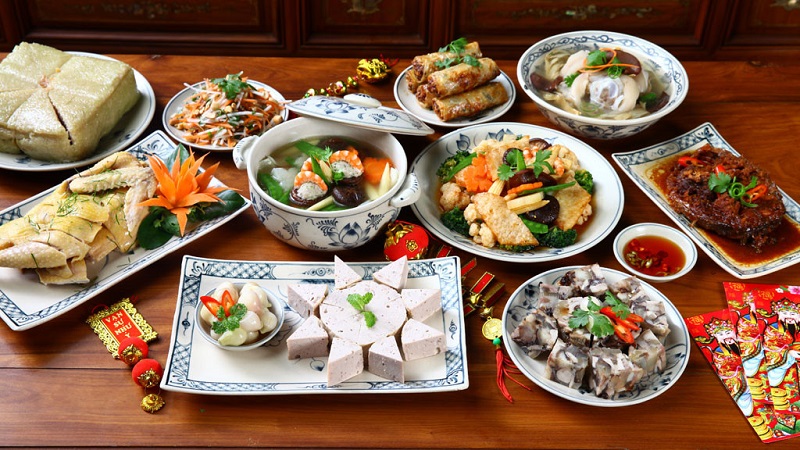The Lunar New Year, also known as Tết Nguyên Đán, is the most significant and widely celebrated holiday in Vietnam, marking the beginning of a new year according to the lunisolar calendar. Rooted in ancient traditions and customs, Tết is a time for families to reunite, honor ancestors, and welcome good fortune and prosperity for the year ahead. As the country prepares to usher in the Year of the Dragon in 2024, let’s embark on a journey to explore the rich cultural tapestry of Vietnamese Lunar New Year festivities and traditions.
Table of Contents
Celebrating the Lunar New Year in Vietnam 2024: Embracing the Year of the Dragon
The Lunar New Year 2024 in Vietnam falls on Saturday, January 27th. The Dragon is the fifth animal in the 12-year cycle of the Chinese zodiac, representing strength, power, and good luck. According to Vietnamese belief, people born in the Year of the Dragon are believed to be intelligent, resourceful, and leaders in their respective fields. The Year of the Dragon is anticipated to bring positive changes, success, and prosperity to all.

The Customs and Traditions of Vietnamese Lunar New Year: A Symbol of Family and Unity
Tết is a time for family reunions and gatherings. Families travel from near and far to come together and celebrate this auspicious occasion. Homes are meticulously cleaned and decorated with red and gold ornaments, symbolizing good luck and prosperity. Traditional rituals are also observed, such as offering food and incense to ancestors at the family altar and visiting temples and pagodas to pray for blessings and good fortune.
One of the most iconic images of Tết is the traditional flower markets that pop up all over Vietnam during this time. These markets are filled with colorful flowers, particularly peach blossoms and kumquat trees, which are believed to bring good luck and prosperity for the new year. Families often purchase these flowers and plants to decorate their homes, adding to the festive atmosphere of Tết.
Another important tradition during Tết is the giving of lucky money, known as “lì xì” in Vietnamese. Red envelopes containing money are given to children and unmarried adults as a symbol of good luck and blessings for the new year. This tradition is also seen as a way to share wealth and prosperity with loved ones.

Culinary Delights of Tết: Exploring Traditional Vietnamese Lunar New Year Cuisine
No celebration in Vietnam is complete without delicious food, and Tết is no exception. Traditional dishes are prepared and shared among family members during this time, with each dish holding its own symbolic meaning.
One of the most popular dishes during Tết is “bánh chưng,” a square-shaped sticky rice cake filled with pork, mung beans, and black pepper. The shape of the cake is said to represent the earth, while the green color of the mung beans symbolizes growth and prosperity. Another must-have dish is “dưa hành,” pickled onions, which are believed to ward off evil spirits and bring good luck for the new year.
Other traditional dishes include “gà luộc,” boiled chicken, which represents purity and simplicity, and “thịt kho tàu,” braised pork belly, which symbolizes wealth and abundance. These dishes are often served alongside other favorites such as “bánh tét,” a cylindrical sticky rice cake filled with pork and mung beans, and “chả giò,” crispy spring rolls.
The Meaning of Tết: Understanding the Profound Significance of the Vietnamese Lunar New Year
Tết is not just a time for celebration and feasting, but it also holds deep cultural and spiritual significance for the Vietnamese people. The holiday is seen as a time to honor ancestors and pay respects to one’s roots and heritage. It is believed that the spirits of ancestors return to their homes during Tết, and it is the responsibility of the living to ensure they are well taken care of.
The Vietnamese zodiac also plays a significant role in the meaning of Tết. Each year is associated with a different animal, and it is believed that the characteristics of that animal will influence the events and fortunes of the year. In 2024, the Year of the Dragon, it is believed that there will be an increase in creativity, innovation, and success in various fields.

Conclusion
As we have explored, Tết is more than just a holiday in Vietnam; it is a time for family, tradition, and cultural significance. From the vibrant flower markets to the delicious traditional dishes, every aspect of Tết holds a special meaning and brings people together to celebrate the new year. As we look forward to the Year of the Dragon in 2024, let us embrace the spirit of Tết and wish each other a happy lunar new year filled with blessings and prosperity.
